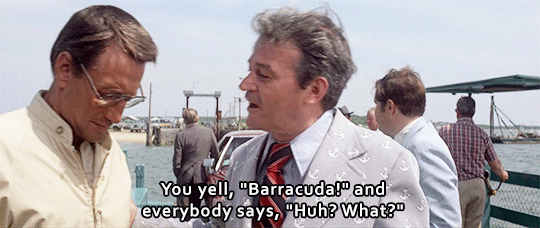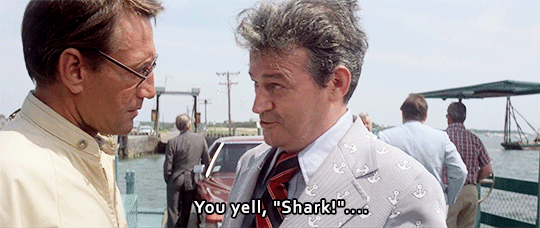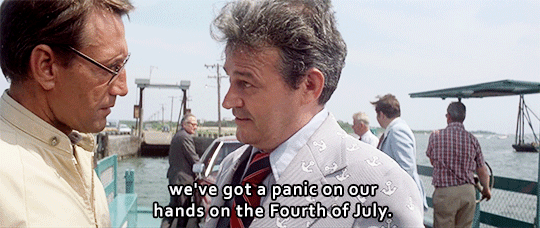Cassandra Undone: Unpacking the Disbelieved Woman in Horror Films
- Oct 14, 2018
- 7 min read

It begins when you’re walking home late at night. Or maybe you’ve been left in the house all alone. Perhaps you're with friends but you’re separated somehow—by a door, a tree-line, whatever keeps them just out of reach. And then you see it: something so horrific that it chills you to your core. It’s so grotesque, so terrifying that all you can do is scream and scramble for help. You know instinctually that’s the only way to survive.
The problem? No one believes you. Oh, and you’re a woman.

Except it’s not really an “and” it’s “because.” No one believes you because you’re a woman. It’s an insidious and scarily prevalent trope in the horror genre. Girl sees something supernatural, girl tries to warn her friends, girl is laughed at until someone winds up with their guts ripped out and then everyone is running for their lives (though of course no one bothers to apologize to her later). We can find this trope hidden within a wide variety of horror films, spanning most of the genre’s existence. It’s Jay’s friends side-eyeing her when she says she’s being stalked in It Follows. It’s Olivia’s friends outright scoffing when she claims their friend was killed by a game of Truth or Dare. It’s the entire conflict of Nails and the iconic fate of Cheryl in The Evil Dead, gang raped by a bunch of trees and finally possessed, all because her friends don’t trust her. It’s the kicker at the end of Better Watch Out. After all, who’d believe the pretty teenager when she tries to tell them the kid she babysits is a monster?
This disbelief has ancient roots. Cassandra is the quintessential woman who speaks truth but is never believed, a curse forced on her because she dared to reject a man. She is a literal embodiment of the belief that women are too dimwitted, too emotional, too hysterical to possibly perceive the world as it truly is—especially when that view counteracts what a man thinks he sees. From there our mythology and fictional storytelling is chock full of women who are never taken at their word, from Darcy thinking that he knows whether Jane really loves Bingley, to schoolteachers housing disbelief about whether that boy really pulled your hair. Horror films crank it up a notch where suddenly that disbelief has consequences for the men as well—you’re going to die!—and it’s still not enough to combat the pervasive idea that women are inherently wrong.
It’s worth contrasting films like these with ones where men are disbelieved as well because the narrative treats their stories very differently. Perhaps the most obvious example here is Jaws. No, a shark isn’t some impossible being, but the concept of a killer shark deliberately hunting down humans is. Much of the story’s conflict revolves around Brody and Hooper trying to convince the Mayor to close the beach, though notably they’re not trying to convince him that the killer shark exists. Mayor Vaughn is perfectly aware of this, even if his terrified denial makes him say otherwise at times. His choice to keep the beach open doesn’t stem from a lack of faith in what the men are telling him, it stems purely from greed. Closing the beaches will lose him money. It’s that simple. At no point are these mens’ belief in the impossible challenged. If anything, they are reprimanded for not convincing others more quickly. Men always have the power of persuading those around them, even when what they're speaking about seems improbable, even impossible.
Admittedly this trope is useful in providing a reason for kids and teenagers to face the horrors on their own, signaling their move into adulthood. If you’re not going to kill the parents off then you need a reason why they’re not taking charge of the situation like they’re meant to and disbelief is an easy out. Sometimes that’s due to pure skepticism on the authority figure’s part—McGonagall straight up doesn’t buy that someone could steal the sorcerer’s stone so sorry, Harry, you need to fight the creepy Dark Lord on your own—and other times some supernatural force keeps them from believing even if they wanted to. 2017’s It demonstrates this beautifully by presenting a town where the adults are brainwashed by Pennywise. When Beverly’s bathroom fills with blood her father literally can’t see it and it’s a great relief for her to learn that her friends, other kids, can. Even King eventually falls back into the trope though. He waits until nearly everyone in the group has encountered Pennywise before admitting what they’d seen, so six of the seven have already been provided with proof… yet the seventh, Richie, still doesn’t believe them. Notably, he doesn't believe Bill and Beverly as they push for fighting the creature. The combined assurances of all his friends, lead in part by a girl, still isn’t enough to create even a brief suspension of disbelief. It’s not as gendered here (a rare outlier), but it nevertheless points to the main argument in support of this trope.
Namely, it’s realistic (and don’t we all want realism alongside our ghosts and ghouls…) If some girl came in waving her arms and yelling about a ghost would you really believe her? Uh… yeah, I would. Which is not to say that I necessarily believe in the supernatural, but rather that belief in a ghost is entirely beside the point. She’s terrified and that terror is stemming from something. Whether it was a dream, a hallucination, someone dressed in a sheet, or an actual ghost, her fear needs to be addressed. But the other characters rarely do that. They roll their eyes, shake their heads, and leave her standing there, sobbing and humiliated. Scenes like this don’t send the message that believing in ghosts is silly, but rather that taking a woman’s distress seriously is. Of course, I’m also a woman. I’m primed to believe her because I’m familiar with so-called intuition and know that it’s not some mythical ability but our brains processing familiar information faster than we can consciously acknowledge. Women easily “sense” danger because we’ve been in danger plenty of times before. Proof isn’t necessary in the face of a potential threat because honestly, is that proof really worth more than her life? Most horror films say it is. Hell, even when everyone has their proof a woman must still be derided and disbelieved. Check out the trailer for the new Halloween film:
The language here is telling. Everyone in the family (meaning the grandmother) turns into a “nutcase” during Halloween. Her daughter sounds fed up and patronizing when she asks “what bus crashed?” and our final line is her telling a man, “You don’t believe in the boogyman? You should.” Everyone in this franchise knows that Michael murdered a slew of women. They know that he’s escaped. Yet a woman’s entirely justified fear remains a source of indifference for everyone around her. Or worse, annoyance. If we’re not allowed to be afraid when serial killers are literally out to murder us—if that reaction makes us nutcases—then when can we be afraid?

This isn’t just me nitpicking at an annoying trope. This isn’t, “ugh are they really going to split up?” frustration and then we all move on with our lives. The disbelieved woman in horror films is a nearly 1 to 1 reflection of the disbelieved woman in real life. I’m talking about the Christine Fords of the world who point to their monsters and aren’t believed. They hold their tears in check so as not to be labeled hysterical and they’re not believed. They provide proof… and they’re still not believed. You’ll note that many of my examples—and numerous others films— don’t actually feature those ghosts and ghouls. Rather, the scary monster is a flesh and blood man. I’m talking about The Shining where Wendy tries to articulate why her husband is beginning to scare her and no one really listens. Or Christine Daae, singing about the man who visits her each night as Meg pats her hand and tells her it was just a dream. Michael is just a convict wielding a knife. Luke in Better Watch Out isn’t some supernatural creature, he’s something much worse: a privileged white boy who knows exactly what that privilege will let him get away with.
A friend told me to write a spooky post for Halloween and this was the spookiest thing I could think of: the fact that we learned a man violently assaulted a woman, consistently lied about it, showed not an ounce of remorse, and then we rewarded him with a lifelong position where he has even more power over women. That’s not spooky, that’s goddamn terrifying. But of course I’m a pop culture critic, so it was only a hop skip until I realized why and how we could let something like that happen. Oh, I’m not saying horror tropes are the sole cause of such horrific misogyny… but they’re a part of it. It's not in every film out there---The Boy was a breath of fresh air---but it's still prevalent as hell. For decades we’ve been bombarded with the image of friends and family laughing when a woman claims that she’s in danger. Rolling their eyes. Shaking their heads. Getting annoyed. Getting violent. Calling her a liar. Even when the narrative proves that she was right all along, no one cares. The next time she comes in screaming they’ll just start the process all over again.
What kind of lesson did we think that would teach?

There are real monsters in this world and right now a lot of those monsters are men. So the next time a supposedly hysterical woman comes into your life and says that one hurt her, do me a favor and be better than all those horror movies out there.
Believe her.
Image Credit
#1: https://www.harpersbazaar.com/culture/film-tv/g15932283/best-new-horror-movies-2018/
#2: https://en.wikipedia.org/wiki/Cassandra
GIFs: http://classichorrorblog.tumblr.com/post/162563147079/jaws-directed-by-steven-spielberg-
1975
Trailer: https://www.youtube.com/watch?v=ek1ePFp-nBI
#3: https://gbhbl.com/horror-movie-review-better-watch-2017/
#4: https://people.com/politics/christine-blasey-ford-brett-kavanaugh-testimony-death-threats-cant-go-
home/



Comments